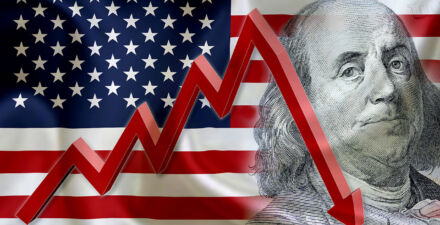More than 200 economists tell Congress: Raise the debt ceiling to avoid a ‘dangerous and unnecessary’ economic crisis
Statement led by former chairs and vice chairs of the Federal Reserve and Council of Economic Advisers; a former director of the National Economic Council; a former secretary, former assistant secretary, and former chief economist at the U.S. Department of Labor; and five Nobel laureates, among others
FOR IMMEDIATE RELEASE
CONTACT:
Katie Wilcoxson, 203-556-6629
kwilcoxson@equitablegrowth.org
WASHINGTON – Today, the Washington Center for Equitable Growth released a statement urging the U.S. Congress to “raise the debt limit promptly and without limitations” to protect U.S. workers, families, and the economy from the “unpredictable, but frightening” consequences that could occur from defaulting on federal debt obligations for the first time in U.S. history, including a “swift and severe economic downturn” with “unnecessary layoffs.” The statement garnered more than 200 endorsements and was led by world-renowned economists with backgrounds spanning the federal government and academia, including:
- Bernard E. Anderson, former assistant secretary of the U.S. Department of Labor
- Martin Baily, former chairman of the Council of Economic Advisers and senior fellow emeritus at the Brookings Institution
- Ben Bernanke, former chair of the Federal Reserve Board of Governors and distinguished senior fellow at the Brookings Institution
- Alan Blinder, former vice chair of the Federal Reserve Board of Governors and Gordon S. Rentschler Memorial Professor of Economics and Public Affairs at Princeton University, and Washington Center for Equitable Growth Steering Committee member
- Robert Engle, 2003 recipient of the Nobel Prize in economics and professor emeritus of finance at New York University’s Stern School of Business
- Roger Ferguson, former vice chair of the Federal Reserve Board of Governors
- Bengt Holmstrom, 2006 recipient of the Nobel Prize in economics and professor of economics at the Massachusetts Institute of Technology
- Aaron Klein, former deputy assistant secretary of the U.S. Department of the Treasury
- Edmund Phelps, 2006 recipient of the Nobel Prize in economics and director of the Center on Capitalism and Society at Columbia University
- Robert Reich, former secretary of the U.S. Department of Labor
- Robert Solow, 1987 recipient of the Nobel Prize in economics and emeritus professor of economics at the Massachusetts Institute of Technology, and Washington Center for Equitable Growth Steering Committee member
- Betsey Stevenson,former chief economist of the U.S. Department of Labor and professor of public policy and economics at the University of Michigan
- Joseph Stiglitz, 2001 recipient of the Nobel Prize in economics and professor of economics at Columbia University
- Laura Tyson, former director of the National Economic Council and distinguished professor at the University of California, Berkeley
The endorsers warn that if Congress defaults on the national debt, “chaos in world financial markets” could occur, along with “higher borrowing costs for the federal government, and indeed for all Americans, that could remain with us for a long time.” The signers emphasize that a default would leave “an unwanted legacy of a foolish decision,” and ask for lawmakers to “act swiftly and decisively” on a bipartisan basis to pass a clean bill that raises the debt limit to avoid these devastating consequences.
“It’s clear that defaulting on the national debt would not only imperil the progress we’ve made over the past 3 years toward an equitable and long-lasting recovery, but would also risk a completely avoidable and historically severe economic crisis,” said Shayna Strom, president and CEO of the Washington Center for Equitable Growth. “Economic research tells us that austerity measures can have negative long-term effects on workers, their families, and the economy. By raising the federal debt limit, Congress can avoid bringing unnecessary hardship on Americans and the economy and, in doing so, will take another needed step toward ensuring economic growth in the future is stronger, more stable, and more broadly shared.”
A full list of signers is available here.
Following is the full text of the statement:
Dear Speaker McCarthy, Majority Leader Schumer, Minority Leader Jeffries, and Minority Leader McConnell:
We, the undersigned economists, urge Congress not to default on our nation’s current federal debt obligations for the first time in U.S. history. We have a wide range of views on economic policies, some “conservative” some “liberal,” but we all agree that Congress should raise the debt limit promptly and without conditions in order to eliminate the risk of default.
The economic consequences of a federal default are unpredictable, but frightening. A swift and severe economic downturn could follow, with unnecessary layoffs across the economy. Chaos in world financial markets is highly likely. Higher borrowing costs for the federal government, and indeed for all Americans, could remain with us for a long time—an unwanted legacy of a foolish decision. We should not run the experiment.
Our nation faces many pressing economic challenges. Defaulting on our national debt—which is dangerous and unnecessary—should not be added to the list by Congress. We urge Congress, on a bipartisan basis, to act quickly and decisively to raise the federal debt limit.
Signed,
Bernard E. Anderson, co-lead
Former Assistant Secretary, U.S. Department of Labor
Martin Baily, co-lead
Senior Fellow Emeritus, Brookings Institution
Former Chair, Council of Economic Advisors
Ben Bernanke, co-lead
Distinguished Senior Fellow, Brookings Institution
Former Chair, Federal Reserve of Governors
Alan Blinder, co-lead
Gordon S. Rentschler Memorial Professor of Economics and Public Affairs, Princeton University Former Vice Chair, Federal Reserve Board of Governors
Robert Engle, co-lead
Professor Emeritus of Finance, NYU Stern School of Business
2003 Recipient of Nobel Prize in Economics
Roger Ferguson, co-lead
Former Vice Chair, Federal Reserve Board of Governors
Bengt Holmstrom, co-lead
Professor of Economics, Massachusetts Institute of Technology
2006 Recipient of Nobel Prize in Economics
Aaron Klein, co-lead
Former Deputy Assistant Secretary, U.S. Department of the Treasury
Edmund Phelps, co-lead
Director, Center on Capitalism and Society at Columbia University
2006 Recipient of Nobel Prize in Economics
Robert Reich, co-lead
Former Secretary, U.S. Department of Labor
Robert Solow, co-lead
Emeritus Professor of Economics, Massachusetts Institute of Technology
1987 Recipient of Nobel Prize in Economics
Betsey Stevenson, co-lead
Professor of Public Policy and Economics, University of Michigan
Former Chief Economist, U.S. Department of Labor
Joseph Stiglitz, co-lead
Professor of Economics, Columbia University
2001 Recipient of Nobel Prize in Economics
Laura Tyson, co-lead
Distinguished Professor, University of California, Berkeley
Former Director, National Economic Council
###
The Washington Center for Equitable Growth is a nonprofit research and grantmaking organization dedicated to advancing evidence-backed ideas and policies that promote strong, stable, and broad-based economic growth. For more information, see www.equitablegrowth.org and follow us on Twitter and Facebook @equitablegrowth.



